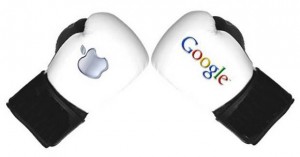Business Cards: Still the Preferred Networking Tool
First adopted in China over half a century ago, business cards are still commonly used today to exchange contact information. It may seem primitive in this day and age where technology has taken over most of our social interactions, but simply no app has truly been able to replace the business card. How can that be?
First off, apps can be cumbersome as both parties need to have the app in order to exchange the information. Their lack of popularity can be attributed to the following catch 22: nobody downloads the app because it is useless, and it is useless because nobody downloads it! Second, a trading off a business card leaves either party free to connect if they’d like to – but there is no obligation. However, adding one another on Facebook can be awkward as you may not precisely remember another’s name off the top of your head, or you may find it awkward to unfriend them after you completely lose touch.
This is not to say that people have given up on trying to develop apps in order to replace the business card, but none have succeeded. With other updates to the business card such as QR Codes, Social Media handles and high quality photos – we won’t be switching over any time soon. After all, if it ain’t broke, don’t fix it!



